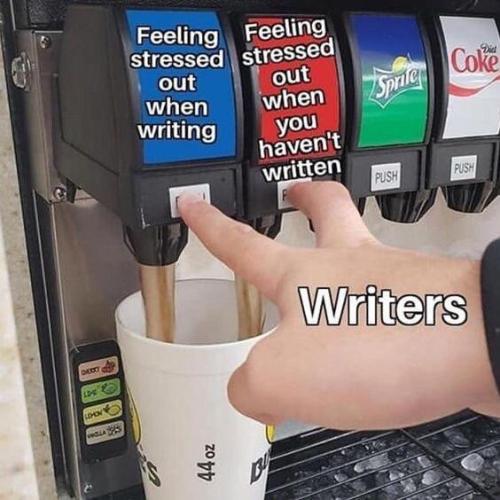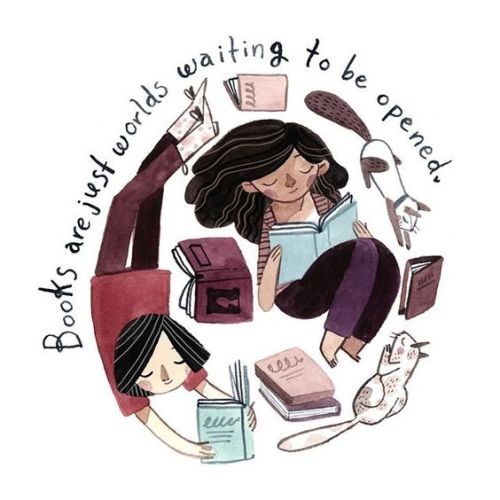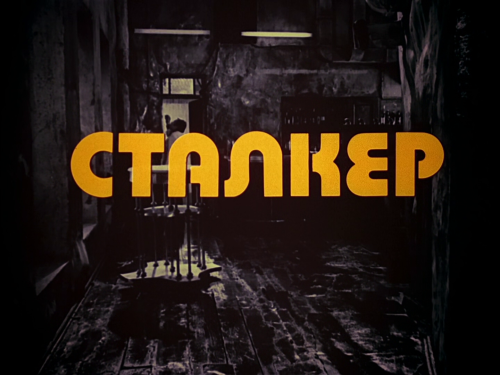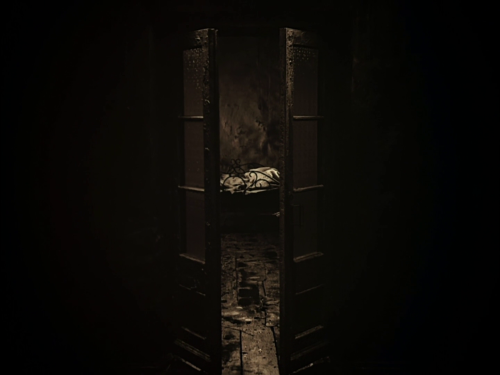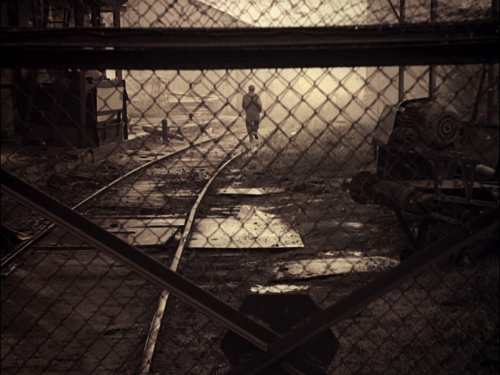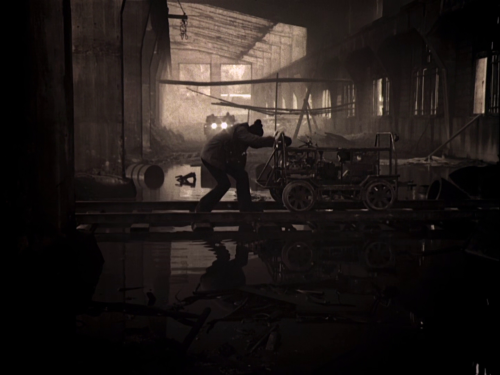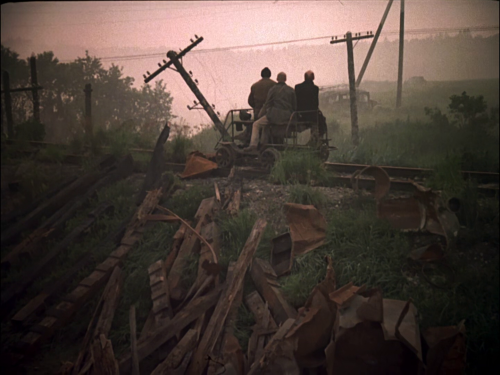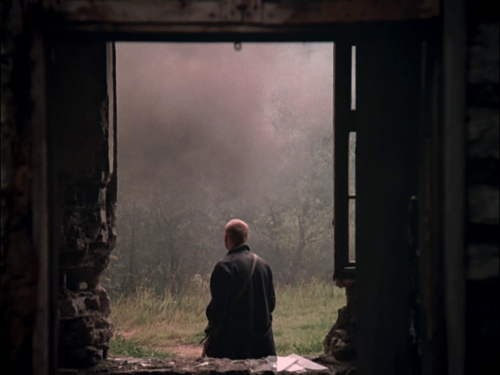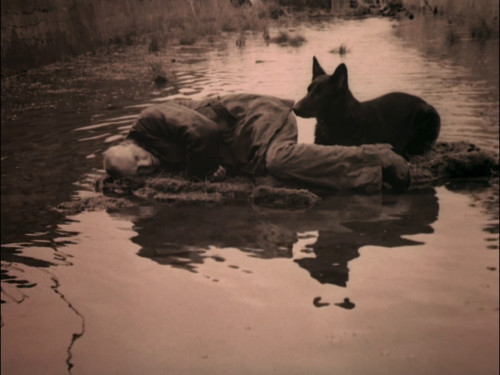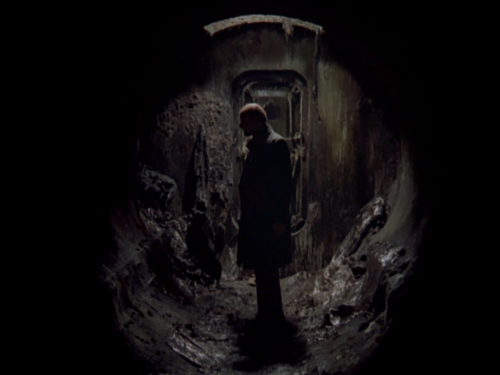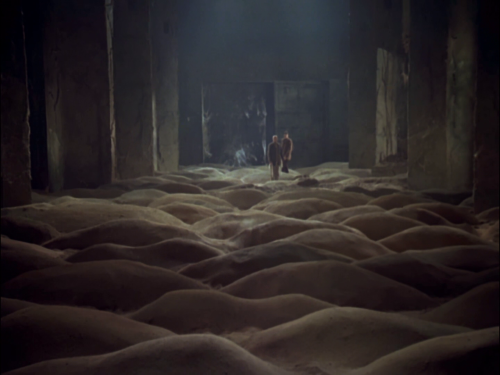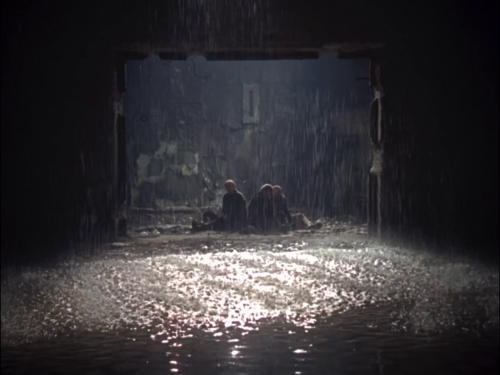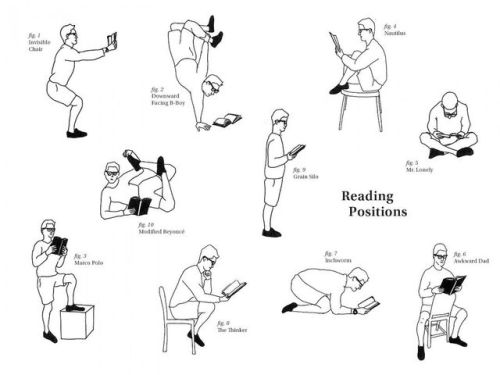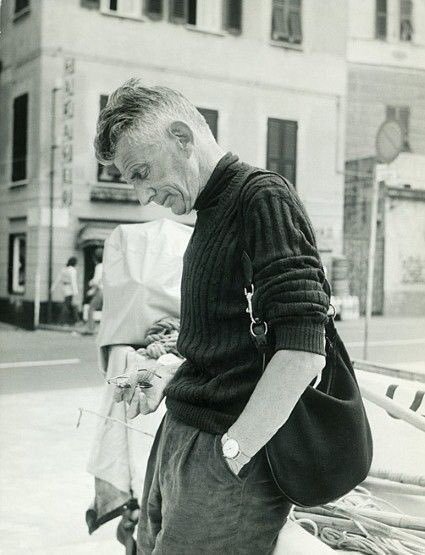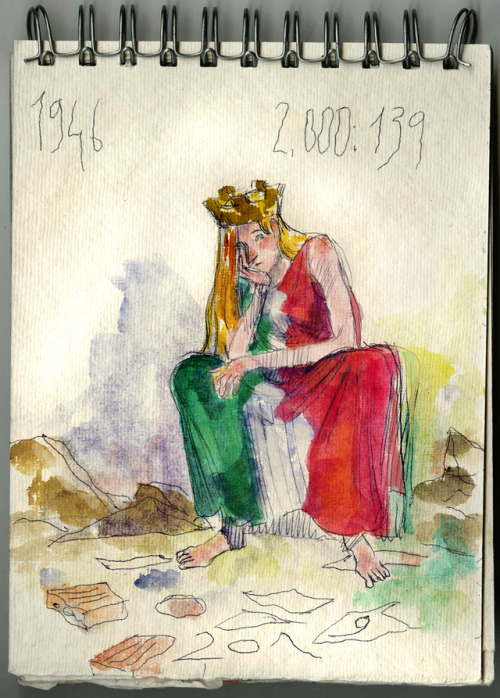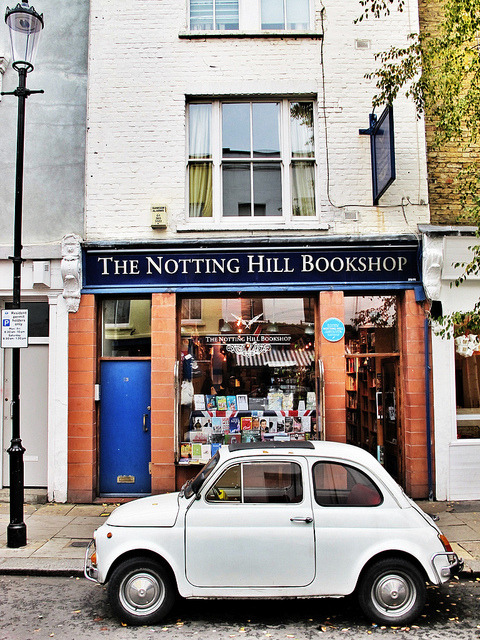domenica 30 giugno 2019
"I used to imagine adventures for myself, I invented a life, so that I could at least exist somehow."
- Fyodor Dostoyevsky (via quotemadness)
sabato 29 giugno 2019
venerdì 28 giugno 2019
yourhandinminethings: ““Un anno intero adesso è trascorso, un anno durante il quale ti sarà successo...
““Un anno intero adesso è trascorso, un anno durante il quale ti sarà successo senz’altro qualcosa. Ma tu non mi dici quanto lontani sono, dietro quest’anno, il nostro maggio e il nostro giugno… Quanto lontana o quanto vicina sei, Ingeborg? Dimmelo, cosí saprò se tu chiudi gli occhi, quando io adesso ti bacio. Paul””— Paul Celan a Ingeborg Bachmann
giovedì 27 giugno 2019
mercoledì 26 giugno 2019
I pescibanana
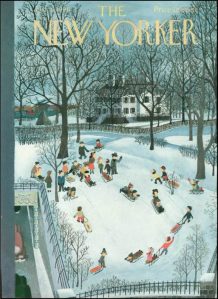
Lo conoscete Un giorno ideale per i pescibanana?
Adesso che ho deciso di parlarvi di racconti, ho subito pensato al racconto di D.J. Salinger, per me il suo miglior racconto.
Quando nel gennaio 1947 (il romanzo Il Giovane Holden sarà pubblicato nel 1951) Salinger propose al New Yorker un racconto intitolato The Bananafish, William Maxwell, fiction editor della rivista, lo accolse con…
fabforgottennobility: Mole e Luna piena by morglin...
martedì 25 giugno 2019
lunedì 24 giugno 2019
alextriestowritestuff: It’s a constant state of being
domenica 23 giugno 2019
sabato 22 giugno 2019
"I came to a point where I needed solitude and just stop the machine of thinking and enjoying what..."
- Jack Kerouac (via quotemadness)
Racconti e racconti brevi

In una lettera del 1992, l’umorista canadese John Robert Colombo raccontò il seguente aneddoto su Hemingway: durante un pranzo con amici in un ristorante di New York (il Luchow o il The Algonquin), il grande scrittore americano sfidò i suoi convitati a mettere sul tavolo 10$, scommettendo che sarebbe riuscito a scrivere una storia in sole sei parole. Ovviamente vinse, scrivendo su un tovagliolo:
giovedì 20 giugno 2019
mercoledì 19 giugno 2019
martedì 18 giugno 2019
lunedì 17 giugno 2019
domenica 16 giugno 2019
"Tutto quello che ho per difendermi è l’alfabeto; è quanto mi hanno dato al posto di un fucile."
- Philip Roth
(via nuvolebuffe)
sabato 15 giugno 2019
E dopo che ho scritto un racconto?
E dopo che ho scritto un racconto?

Una decina di giorni fa ho inviato un mio racconto ad una rivista. La rivista, che penso sia una buona rivista, si chiama Crack e la potete trovare online. Dopo circa una settimana, in un lasso di tempo breve, ricevo la tanto agognata risposta:
Abbiamo letto il tuo lavoro. Purtroppo non ci ha convinto.
In parole ancora più povere, mi hanno liquidato con una frasetta.
Non penso che il…
venerdì 14 giugno 2019
joeinct: William S. Burroughs Looking at Plywood Cut-out...
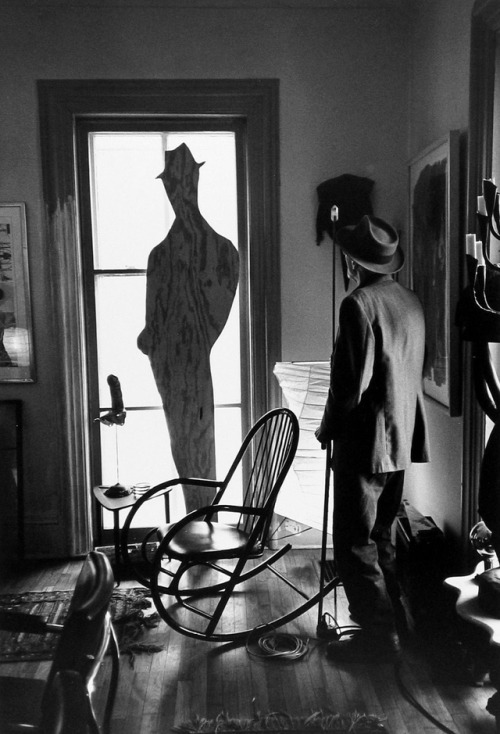
William S. Burroughs Looking at Plywood Cut-out Silhouette, Lawrence, Kansas,Photo by Allen Ginsberg, 1992
giovedì 13 giugno 2019
thatwritergirlsblog: Acing pacing in your writing I’ve read too many books and watched too many...
Acing pacing in your writing
I’ve read too many books and watched too many shows where pacing has ruined a good story. So, here are some of my tips for getting pacing right:
1. Don’t take too long to get to the inciting incident
- Look, showing the ordinary life of your protagonist might be interesting if there’s something strange about their life, but readers want stuff to happen.
- At least with genre fiction, you shouldn’t take too long to get to the action - the event that gets the story going.
- If you can do it well and have readers invested from the start, you can start with the inciting incident. However, for most works I would recommend having it in the second chapter.
- Your readers want to know what the story is about, not what the character thinks of his English teacher
2. Keep it moving, but don’t rush
- Action is important. It drives the story and it’s interesting. You should make sure to put enough action in your work. Things should be happening.
- BUT a novel is not a play or a movie or a comic. What makes reading a full-length novel so entertaining is the detail. The in-depth characterisation and description. The emotion and thought processes.
- So, keep it moving, but don’t sacrifice the juicy details. Don’t skip from one action or dialogue scene to the next without taking your readers deeper into the intricacies of the story and characters.
- It’s a delicate balance that can only truly be found by reading a lot and practicing.
3. Avoid a sagging middle
- Your beginning is solid. Your end is exciting. But the middle is a chaotic mess that bores the reader. Trust me, it happens more than you might believe.
- Sagging middle syndrome is a thing, and the only way to avoid it is to plan.
- Look, I like pantsing, but planning the middle of your novel will help your pacing exponentially.
- Make a rough outline of what needs to happen to get your characters to the climax. Add a few lighter/character-driven scenes where there are too many action scenes in the sequence. Remove events which are unnecessary. And make sure that everything makes sense!
- This counts for second books in series as well. It should be good on its own, not just as a filler.
4. Don’t fast forward to the end
- I’m looking at you, Game of Thrones.
- If you’ve built up the story and set up everything for the final big bang, you have to deliver.
- Keep the pacing somewhat similar to that of the rest of the story. Your readers have gotten used to it. And if they’re still reading at that point, they probably like that pace. Don’t write a relatively slow book and then have the climax be over in three pages.
- I know you want the climax to be exciting. So, yes, make it a little more fast-paced than the middle. But not massively different.
5. Trust your characters
- As with every aspect of creative writing, character is most important.
- Is your character experiencing the scene quickly and choppily? Or are they slowing down and taking in everything?
- If you stick with what your characters are feeling, you will get it right.
Look, exams have fried my brain. So, this isn’t the most well-formulated post I’ve made. But I hope that it can be helpful.
Reblog if you found these tips useful. Comment with your own pacing tips. Follow me for similar content.
mercoledì 12 giugno 2019
martedì 11 giugno 2019
lunedì 10 giugno 2019
therefined:“Because sending a letter is the next best thing to...
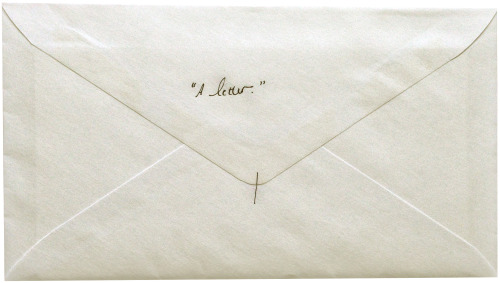
“Because sending a letter is the next best thing to showing up personally at someone’s door. Ink from your pen touches the stationary, your fingers touch the paper, your saliva seals the envelope, your scent graces the paper. Something tangible from your world travels through machines and hands, and deposits itself in another’s mailbox; their world. Your letter is then carried inside as an invited guest. The paper that was sitting on your desk, now sits on another’s. The recipient handles the paper that you handled. Letters create a connection that modern and impersonal forms of communication will never replace.”
domenica 9 giugno 2019
ypsilonzeta1: sleepybookowl: True Colors «Leggere è come...

True Colors
«Leggere è come pensare, come pregare, come parlare con un amico, come esporre le tue idee, come ascoltare le idee degli altri, come ascoltare musica (sì, sì) come contemplare un paesaggio, come uscire a fare una passeggiata sulla spiaggia».
Roberto Bolaño
sabato 8 giugno 2019
venerdì 7 giugno 2019
Buona notte
È bello andare a dormire, perché ci si sveglierà. È il mezzo più rapido di fare il mattino. (5 marzo 1947)
C. Pavese, Il mestiere di vivere (Diario 1935-1950), Torino, Einaudi, 1973
"When I look at my life and its secret colours, I feel like bursting into tears."
- Albert Camus (via thestrangerdaily)
giovedì 6 giugno 2019
"Le parole per me sono corpi tangibili, sirene visibili, sensualità incorporate."
- Fernando Pessoa (via yourhandinminethings)
iosonorockmaballoiltango: E l'amore? Occorre lavarsi Da questa sporcizia ereditaria Dove i nostri...
E l'amore? Occorre lavarsi
Da questa sporcizia ereditaria
Dove i nostri pidocchi astrali
Continuano a spaparanzarsi
L'organo, l'organo che percuote il vento
La risacca del mare furioso
Sono come la melodia profonda
Di questo sogno sconcertante
Di Lei, di noi o di quest'anima
Che invitammo al banchetto
Voi diteci chi è l'ingannato
O ispiratore delle infamie
Colei che dorme nel mio letto
E spartisce l'aria della mia camera
Può giocarsi a dadi sul tavolo
Il cielo stesso della mia mente.
Antonin Artaud
How Classic Cartoons Created a Culturally Literate Generation
Interesting read. (Though, to be fair, Tom & Jerry did rather confuse some of us about the effect of hammers, dynamite, etc.)
faireladypenumbra: I think as a writer, personally anyway, there’s a lot of creative time spent...
I think as a writer, personally anyway, there’s a lot of creative time spent trying to recreate the spark I first found when I started writing. That “up at 4am with 3,000 words under my belt” feeling. I’m slower now, now meticulous, and can spend months on a project that used to take me weeks. I plan more than I actually pen down, and though my drafts are easier to polish, they take forever now. You begin to fear you went off the rails somewhere: there are tons of articles, and self-help guides, and motivating quotes about these growing pains.
it’s taken me a few projects to realize that writing isn’t about chasing the original energy that made you a writer, but connecting with the parts that make you a better one. Writing is something that grows with you, rather than a stagnant happy space- or it should be anyway. This is growth, I have to remind myself, and change is good.
incidentalcomics: The Writer’s Routine For the NY Times Book...
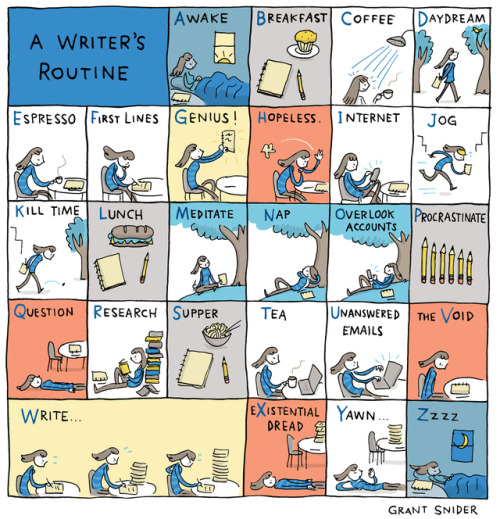
The Writer’s Routine
For the NY Times Book Review
"It’s better to bet on this life than on the next."
- Albert Camus, A Happy Death (via philosophybits)
mercoledì 5 giugno 2019
"Dunque, per ascoltare avvicina all’orecchio la conchiglia della mano che ti trasmetta le linee..."
Dunque, per ascoltare
avvicina all’orecchio
la conchiglia della mano
che ti trasmetta le linee sonore
del passato, le morbide voci
e quelle ghiacciate,
e la colonna audace del futuro,
fino alla sabbia lenta
del presente, allora prediligi
il silenzio che segue la nota
e la rende sconosciuta
e lesta nello sfuggire
ogni via domestica del senso.
Accosta all’orecchio il vuoto
fecondo della mano,
vuoto con vuoto.
Ripiega i pensieri
fino a riceverle in pieno
petto risonante
le parole in boccio.
Per ascoltare bisogna aver fame
e anche sete,
sete che sia tutt’uno col deserto,
fame che è pezzetto di pane in tasca
e briciole per chiamare i voli,
perché è in volo che arriva il senso
e non rifacendo il cammino a ritroso,
visto che il sentiero,
anche quando è il medesimo, non è mai lo stesso
dell’andata.
Dunque, abbraccia le parole
come fanno le rondini col cielo,
tuffandosi, aperte all’infinito,
abisso del senso.
- Chandra Livia Candiani, Mappa per l’ascolto.
(via il-colore-del-vento)
iosonorockmaballoiltango: At the heart of all great art is an essential melancholy. Federico García...
At the heart of all great art is an essential melancholy.
Federico García Lorca
raysofcinema: STALKER (1979) Directed by Andrei...
ebookfriendly: Libraries always remind me that there are good...
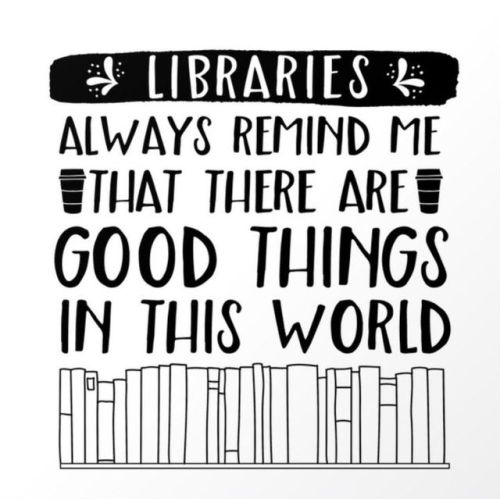
Libraries always remind me that there are good things in this world. –Lauren Ward #librarylove #libraries #quote More
1hollygolightly1-blog: “… poteva essere verità, poteva essere bugia, ecco qual è l'insufficienza...
“… poteva essere verità, poteva essere bugia, ecco qual è l'insufficienza delle parole, o, al contrario, la loro condanna per sistematica doppiezza, una parola mente, con la stessa parola si dice la verità, non siamo ciò che diciamo, siamo il credito che ci danno,”— José Saramago, L'anno della morte di Ricardo Reis, 1984 - pag. 284 (via somehow—here)
martedì 4 giugno 2019
universitybookstore: “Poets have been mysteriously silent on...

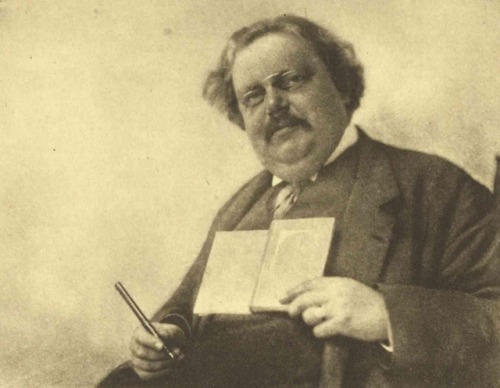
“Poets have been mysteriously silent on the subject of cheese.” – Gilbert Keith Chesterton, born April 29, 1874.
Ways to Get Inspired to Write That Character
1. Create a Mood Board
A mood board is a collage of images, text, colors, or materials. that are used to “to evoke or project a particular style or concept”. Basically, it helps set the “mood” for whatever you are working on. Mood boards are often used by interior decorators and artists but can also be used for writing. I love creating mood boards for each of my characters. It helps me get a a feel for the character I am writing. For example, one of my characters is an elven swordswoman. For her mood board I used images of trees, flowers, decorative swords, and artwork of elves. It really helps when I’m trying to write from her perspective.
To create a mood board, simply find images or text that remind you of your OC. I use google images or even pinterest to find images. Its easy and fun.
2. Take Quizzes for Your Characters
Okay, this may seem a little silly but it totally works. Take a quiz from your characters point of view. Select the answers you think your character would select. I personally like doing this with personality quizzes such as the Myers Briggs tests because I can use the results as a foundation for my characters personality. It’s fun, effective, and actually productive.
3. Create Playlists
I listen to music a lot because it gets my creative juices flowing. So, if I find myself stuck on a particular character, I make a playlist of songs that remind me of that character. I actually like doing this before I start working on a character so I can listen to it while working on them. It sets the mood and gives you better results. Give it a try.
4. Study Some of Your Favorite Characters
Sit down, take out a notebook, and start taking notes on some of your favorite characters from literature, TV, or movies. What made you attracted to this character? What made you hate this character? What is your favorite thing about this character? Answering these questions will help see why you feel that way towards your favorite or least favorite fictional characters. Use your notes as a guideline on how to make readers either hate or love your OCs.
5. People Watch
Yeah, this sounds creepy but it is very effective. Go to the park, take a walk, or simply sit at the window and observe the people you see. Take notes on the little things that they do. Do they walk a certain way? Do they stand up straight or do they slouch? What quirks do they have? Do they drum their fingers while sitting? Do they tap their foot while waiting in line? Write down what you observe and you can apply the results to your characters. It will give your original characters a more realistic touch.
Feel free to add to this list!
"Nothing stinks like a pile of unpublished writing."
lasbronzaconsapevole:“Comunque vecchia non pensavo bisognasse...
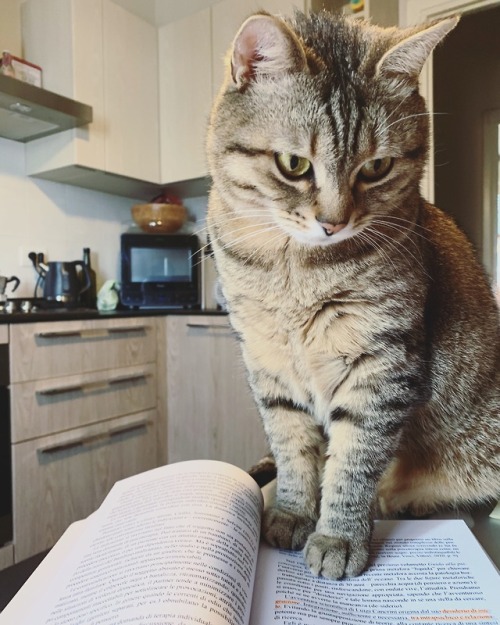
“Comunque vecchia non pensavo bisognasse studiare così tanto per essere assunti da McDonald. Quante pagine ti mancano?”.
"I created myself, echo and abyss, by thinking. I multiplied myself, by going deeply into myself…"
- Fernando Pessoa (via freelance-philosopher)
lunedì 3 giugno 2019
iosonorockmaballoiltango: E allora impara a vivere. Tagliati una bella porzione di torta con le...
E allora impara a vivere. Tagliati una bella porzione di torta con le posate d’argento. Impara come fanno le foglie a crescere sugli alberi. Apri gli occhi. Sul raccordo del Green Cities Service e sulle colline di mattoni illuminate di Watertown, la sottile falce di luna nuova sta distesa di schiena, unghia luminosa di Dio, palpebra abbassata di un angelo. Impara come fa la luna a tramontare nel gelo della notte prima di Natale. Apri le narici. Annusa la neve. Lascia che la vita accada.
Sylvia Plath, “Diari”
"-Ah! Se solo sapeste quante volte mi sono innamorato in questo modo! -“Ma come, di chi?…” -“Di..."
-“Ma come, di chi?…”
-“Di nessuno, di un ideale visto in sogno. In sogno creo dei romanzi interi. Oh, voi non mi conoscete! Non si può vivere senza sognare!”
- Fëdor Dostoevskij, Le notti bianche. (via il-colore-del-vento)
"But this is what the world is like. And I love the world. I long to devour it all, every bit of it...."
- Boris Pasternak, in a letter to Marina Tsvetayeva, Letters, Summer 1926: Pasternak, Tsvetayeva, Rilke
(via soracities)
"A poet is, before anything else, a person who is passionately in love with language."
- W.H. Auden (via quotemadness)
Writing awesome antagonists
You guys asked for it. So, here ya go:
1. An antagonist isn’t necessarily a villain
- When I hear the word ‘villain’, I think of someone with sinister/evil intentions. Someone who wants to rule the world or ruins nature by using dark magic or kicks puppies. These characters can be great in stories, but they’re not the only option for conflict.
- An antagonist can be your protagonist’s competitor, an overprotective loved one, someone with a different view, or even a different side of the protagonist themself (think Dr Jekyll and Mr Hyde).
- If your aim is to write an antagonist (who may or may not be a villain),then this post is for you!
2. Motivation is the holy grail
- Do not make your antagonist evil for the sake of being evil. The most famous example of this is Iago in the Shakespeare play Othello (yes, Shakespeare made mistakes. Deal with it.)
- In children’s stories or melodramatic stage plays, it’s fine if your villain simply exists because there has to be someone evil to oppose the MC’s good. But if you’re writing anything MG or higher, this isn’t gonna cut it anymore.
- People are complicated. They have different morals, beliefs and alliances. But most people believe that they are good, that they are justified in the way they act and treat others. So, even though a great amount of people are dicks, they don’t think they are.
- This should translate to your antagonist. They need to have a reason for opposing the protagonist. The first thing you should determine for each character in your book, is their fundamental motivation. What is it that they want/are striving for? Is your antagonist ambitious above all else and they are determined to become King? Is she trying to kill your MC because their blood is the only cure to some alien disease. Are they scared of the unknown and detest the protag because of their ancestry? Whatever the case is, it needs to be a real, identifiable and strong motive.
- If you want to go into a more evil direction and use an inherently flawed/dangerous motivation, I would suggest linking it to solid reasons. e.g. If you’re writing something like the evil queen in Snow White, you need to link her psychopathic vanity to the flaws of the society she grew up in or the way she was treated as a child etc. Maybe the character has antisocial personality disorder (psychopathy) or was raised to squash all competition etc.
- Motivation is even more important if you intend to write some scenes from the perspective of the antagonist
3. Near invincibility
- You can have more than one antagonist in your story, but the big baddie should be REALLY big.
- The main antagonist needs to be the biggest thing your protagonist has ever had to face. And they need to be a more-than-worthy opponent.
- This ups the tension in your novel, since the reader will be anticipating the final showdown and truly wondering whether the MC will be able to come out on top.
- The way to do this is to litter small conflicts between the two characters throughout the story. You protagonist should have altercations with the antagonist/their army/their minions before the big conflict at the end. Each of these smaller show-downs should end in the protagonist losing/having to retreat/surrendering/getting severely injured and discouraged.
- You can show the protagonist beating other opponents, but they shouldn’t get the upper hand over the main antagonist until the final conflict. This shows the reader than the MC will really have to dig deep in order to overcome the big conflict.
- NB: The antagonist needs to start out waaayyy stronger than the protagonist.
4. Antagonist plot twists
- Antagonists/villains can be great tools for shocking plot twists.
- This mostly has to do with playing with expectations of who the villain will be.
- So, maybe the person your characters thought was the antagonist has been under the evil influence of an even bigger baddie the whole time.
- Maybe the antagonist turns out to be the one with the better philosophy/plan.
- Maybe one of the “good” characters turns out to be the actual villain.
- Maybe the antagonist is only a figment of the protagonist’s imagination (think Black Swan).
- Maybe the system is the real bad guy and your antagonist is just another victim.
- Whatever floats your boat. Just know that you can do wonderful, twisty things with the antagonist. Use that to your advantage.
5. Redemption, anyone?
- This is a highly contested topic, but I believe that antagonists can and should sometimes be redeemed.
- How this happens depends on your specific story and the character. Obviously, if the antagonist committed genocide and poisoned kittens, they got some splainin to do. In these cases, the change in mind of the character has to be warranted. Something HUGE needs to happen to them that changes the way they think and behave. And they better be fucking sorry and willing to do whatever it takes to make things right.
- If your antagonist isn’t the personification of evil, this will be a bit easier. Since they probably opposed the protagonist due to societal ideologies or fraudulent beliefs, it only requires the truth to be revealed for them to shift their alliance. They should still say sorry, though. It’s only polite.
- My advice with redemption arcs is that the antagonist has to suffer before they can truly be redeemed. They have to face some consequences for the time they spent on the wrong side of the fight. And they shouldn’t be trusted/accepted by the protagonist immediately.
- If you want to learn how to do a redemption arc right, look at Zuko’s story in Avatar: The Last Airbender. He has the best redemption arc in fictional history.
Alright, that’s all I have for now. I hope that you guys found this useful. If you want me to do a post about creating an antagonistic character that hooks the reader, be sure to leave a comment.
Reblog if you found this useful. Comment with your own tips. Follow me for similar content.
domenica 2 giugno 2019
sabato 1 giugno 2019
kvetchlandia: James Jowers Washington Square, Greenwich...
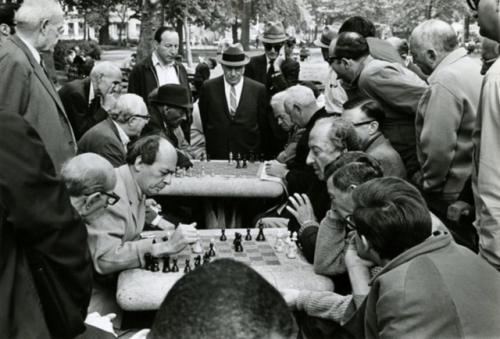
James Jowers Washington Square, Greenwich Village, New York City 1969
Questa fotografia… è un mondo perfetto! https://www.thefreak.it/un-mondo-perfetto/
live-2-learn: source: live-2-learn Torin well, Turin ;)
"We are actually living in a million parallel realities every single minute."
- Marina Abramovic (via quotemadness)
universitybookstore: SONG OF MYSELF, XLVI I know I have the...
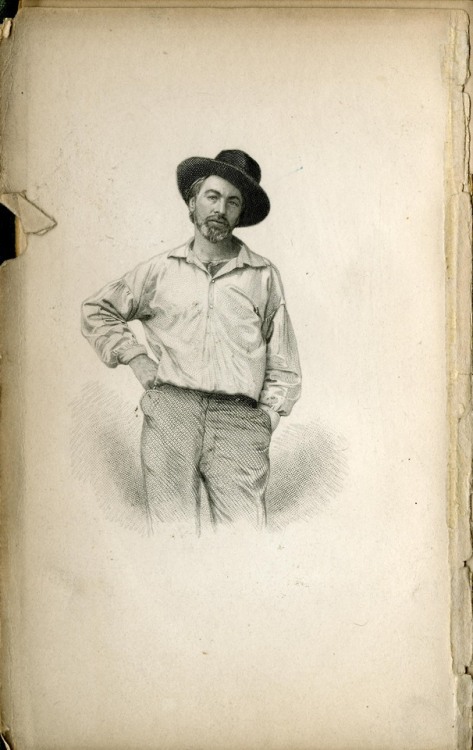
SONG OF MYSELF, XLVI
I know I have the best of time and space, and was never measured and never will be measured.
I tramp a perpetual journey, (come listen all!)
My signs are a rain-proof coat, good shoes, and a staff cut from the woods,
No friend of mine takes his ease in my chair,
I have no chair, no church, no philosophy,
I lead no man to a dinner-table, library, exchange,
But each man and each woman of you I lead upon a knoll,
My left hand hooking you round the waist,
My right hand pointing to landscapes of continents and the public road.
Not I, not any one else can travel that road for you,
You must travel it for yourself.
It is not far, it is within reach,
Perhaps you have been on it since you were born and did not know,
Perhaps it is everywhere on water and on land.
Shoulder your duds dear son, and I will mine, and let us hasten forth,
Wonderful cities and free nations we shall fetch as we go.
If you tire, give me both burdens, and rest the chuff of your hand on my hip,
And in due time you shall repay the same service to me,
For after we start we never lie by again.
This day before dawn I ascended a hill and look’d at the crowded heaven,
And I said to my spirit When we become the enfolders of those
orbs, and the pleasure and knowledge of every thing in
them, shall we be fill’d and satisfied then?
And my spirit said No, we but level that lift to pass and continue
beyond.
You are also asking me questions and I hear you,
I answer that I cannot answer, you must find out for yourself.
Sit a while dear son,
Here are biscuits to eat and here is milk to drink,
But as soon as you sleep and renew yourself in sweet clothes, I
kiss you with a good-by kiss and open the gate for your egress hence.
Long enough have you dream’d contemptible dreams,
Now I wash the gum from your eyes,
You must habit yourself to the dazzle of the light and of every moment of your life.
Long have you timidly waded holding a plank by the shore,
Now I will you to be a bold swimmer,
To jump off in the midst of the sea, rise again, nod to me, shout, and laughingly dash with your hair.– Walt Whitman. Celebrating the poet’s bicentennial, May 31, 1819!

